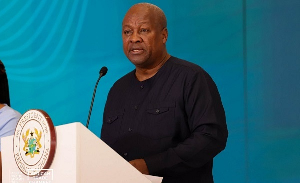The recent decision by the Ghanaian government to impose taxes on sports betting reflects a clear insensitivity towards the dire problem of youth unemployment. This move not only highlights the government's misplaced priorities but also exposes its lack of consideration for the struggles faced by the nation's young population. Let us delve deeper into the implications and consequences of this unjust taxation policy while questioning the government's commitment to its citizens.
Lack of job creation efforts
One of the fundamental responsibilities of any government is to prioritize job creation, especially for the youth. Regrettably, the Ghanaian government has failed miserably in living up to this expectation. The unemployment rate among the nation's young population continues to soar, while the government remains passive in implementing concrete plans and policies to address this crisis. Imposing taxes on sports betting without presenting viable alternatives to generate employment is not only shortsighted but also demonstrates an alarming lack of empathy toward the very citizens it should be serving.
Neglecting the potential of the betting industry
The sports betting industry often considered a controversial sector, possesses significant potential in terms of job creation and revenue generation. However, instead of harnessing this potential, the government has chosen to stifle its growth through heavy taxation. This effectively hampers the industry's ability to expand, innovate, and create more employment opportunities. By failing to recognize this potential and support its development, the Ghanaian government is actively hindering economic progress while turning a blind eye to the needs and aspirations of its young citizens.
Disregard for youth entertainment needs
The imposition of taxes on sports betting highlights the government's disregard for the entertainment needs of Ghana's youth. As a vibrant and energetic population segment, the youth seek outlets for enjoyment and leisure activities. Sports betting has gained popularity among the young generation, providing a form of entertainment and engagement. Rather than promoting and diversifying these options, the government's decision to tax this industry demonstrates a lack of understanding and respect for the interests and preferences of its citizens.
Diminishing public trust
Ghana's youth are becoming increasingly disenchanted with a government that fails to show genuine concern for its people. By imposing taxes on sports betting without addressing the immediate and pressing issue of unemployment, the government erodes public trust and undermines its credibility. This insensitivity breeds disillusionment and a sense of alienation among the citizens who rightly expect their leaders to prioritize their welfare.
Demand for comprehensive solutions
It is high time for the Ghanaian government to adopt a more proactive approach to tackling youth unemployment. Instead of resorting to short-sighted taxation strategies, the government should focus on creating an enabling environment for job creation. This can be achieved through targeted investments in vocational training, financial incentives for small businesses, and the development of innovative programs that promote entrepreneurship. Such comprehensive measures would not only address the unemployment crisis but also foster a sense of hope and prosperity for the country's youth.
Conclusion
Ghana's government's decision to impose taxes on sports betting while disregarding the pressing issue of youth unemployment is indicative of an insensitive approach toward its citizens. By prioritizing revenue generation over job creation, the government is essentially turning its back on the struggles faced by the nation's youth.
The government must reassess its priorities, enact policies that support employment opportunities, and demonstrate a genuine commitment to the well-being of its people. Only through such meaningful action can the government begin to regain the trust and legitimacy it has lost among the disillusioned young population of Ghana.
Opinions of Wednesday, 16 August 2023
Columnist: Dindiego Thomas















